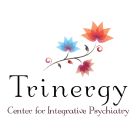Ayurveda – Need of the Hour?
In early 2018, I received a call from a mother whose daughter had “Misophonia.” Frankly, it is a relatively new “disease.” Misophonia is a condition wherein certain common sounds (breathing, chewing, etc) can trigger intense, exaggerated emotional reaction in people with this condition; resulting in secondary anxiety, depression and disability in many areas of life. My research of this condition indicated that people were recommended antidepressants, noise canceling devices, cognitive behavior therapy, etc. But the prognosis was described as poor with the idea that symptoms are chronic and need to be “managed.”
I met with the young lady and used my training in Functional Medicine and Ayurveda, to solve this puzzle. In addition to anxiety and depression, she also had symptoms of heart burn, headaches, acne, skin rash, and was overweight. From an Ayurvedic lens, she was severely inflamed, and this inflammation was manifesting in various organ systems in her body – the gut, brain, skin, etc. I explained the treatment which focused on eliminating this inflammation.
With her participation in the treatment, within 3 months’ time, she had a 17 pound weight loss, no headaches or acne, and her skin was clear and smooth – “like a baby’s skin” was her mother’s description. Anxiety, mood and misophonia were all significantly better. Just with diet and lifestyle medicine (meditation and some psychotherapy), we put out the fires in her body (or inflammation resolved) and every organ system began to heal and flourish.
In contrast, a traditional psychiatric approach would be with antidepressants and psychotherapy. What is wrong with this linear approach is its akin to shooting in the dark and hoping to hit bull’s eye. Not to mention the exposure to the long list of side effects!
With this example in mind, let me explain how an ancient system of medicine can help where modern medicine – with all its technological advances – can sometimes be not helpful. Let’s begin with an understanding of what Ayurveda is…
What is Ayurveda?
Ayurveda is a more than 5000-year-old traditional healing system of India and according to WHO (World Health Organization), is the oldest-surviving, continuously practiced, complete medical system in the world. Ayurveda is a composite word with “Ayur” meaning life and “Veda” meaning science or knowledge. In other words, Ayurveda is a treatise of life in its totality and not just a medical science. It encompasses medical science, philosophy, psychology, spirituality, art, culture, exercise (yoga), etc. Its tools include lifestyle guidance (stress coping skills, emotion regulation with meditation, nutrition, yoga, etc), herbal and other natural medicines, detoxification and purification procedures, massage therapy and other body work (energy work, essential oils, all have their origin in Ayurveda), etc.
Although ancient in practice, its wisdom is timeless as Ayurveda can provide practical and effective treatments, even for the modern illnesses of today’s society. Cancer, Lyme disease; are both illnesses of modern society but Ayurveda has a framework to explain the pathology and hence formulate a treatment plan in conjunction with what modern medicine has to offer. For such chronic illnesses, a combination of Ayurvedic medicine with modern medicine can help create better outcomes for patients.
Ayurveda understands human physiology as a fine balancing act (or homeostasis). Diseases are seen as a movement away from this state of balance. An Ayurvedic practitioner is simply assessing the degree and direction of imbalance and the treatment plan will essentially walk the person back to balance. So far, no illness or disease has escaped this understanding. In other words, the diagnosis is immaterial. Therefore, lack of information about Misophonia was not a deterrent to my understanding of the physiological imbalance or the pathway to recovery.
Ayurveda’s simple yet profound strategy starts and ends with the patient – an individualized, patient-centric approach. Every aspect of the person’s living experience is taken into consideration – the psychology, physiology, life experiences, attitudes, beliefs; to understand their journey towards the diseased state. The treatment plan is also customized to reflect this understanding.
Ayurveda also recognizes that every life form possesses an innate intelligence with innate healing abilities. Symptoms are compensatory mechanisms to overcome the imbalance. Symptoms are also the communication system the body uses to alert the individual of the imbalance so corrective action is taken. It is also important to note that although the symptom presentation may be similar, the underlying physiological imbalance can be varied. So, two people with similar symptoms of depression can have contrasting treatment plans, based on their unique psycho-physiological imbalance. Once again, reflective of the individualized, customized, patient-centric approach characteristic of Ayurveda.
In contrast, allopathic medicine is disease centric in approach and focuses on “managing symptoms,” sometimes at the expense of the whole person. Hence for any disease, there’s a cookie cutter approach – antibiotics for infections, antacids for heartburn, antipsychotics for psychosis, etc. But we are now realizing the folly of this antagonistic approach. Eg: overuse of antibiotics resulting in serious antibiotic resistance; emergence of serious side effects in post market studies, eg: risk of dementia with statins used to reduce cholesterol levels.
Ayurveda’s core philosophy is that we are one with the universe. We are all made up of the same elements that makes up the universe. All the laws of the universe are also applicable to us. That, the microcosm within a human body reflects the macrocosm of the entire universe. So, living in harmony with our eco system is essential for individual health. Taking care of the environment is not an afterthought, but a necessity for the survival of the human species. For this reason, Ayurveda emphasizes green and clean living – especially eating chemical and pesticide free food, non-genetically modified food, etc. In fact, we are seeing that many illnesses of the modern world (from diabetes to cancer to depression to autism) can be linked to environmental pollution and especially, degradation of our food production system.
When it comes to treatment, Ayurveda not only focuses on symptom removal (Shamana therapy) but also in removing the root cause of the problem (Shodhana therapy). For symptom removal, various herbal medicines and formulations are available. Certain procedures like Shirodhara are also used for symptom removal.

Shirodhara therapy

Abhyanga therapy
Shirodhara is a therapy where warm herbal oil or decoctions are poured rhythmically over the forehead to induce deep relaxation. This therapy is beneficial for many conditions like anxiety and insomnia, and is quickly becoming the fastest trend in the spa industry as well.
Ayurvedic herbal oil massage (Abhyanga) with steam sauna (Swedana) when done correctly is an example of a therapy that provides both symptom relief and also helps remove the root cause.
For removal of the root causes of a disease, balancing the physiology is critical. This is achieved by diet recommendations, lifestyle change and detoxification therapies (known as Panchakarma). All these therapies designed to remove the root cause of the illness fall under Shodhana therapies and are best done in specialized clinics under the guidance of a Vaidya (a doctor of Ayurvedic medicine).
Ayurveda is indeed enjoying rising popularity in the US and elsewhere. Ayurveda spas are the rage now providing specialized massage therapy, natural weight loss treatments, natural cellulite reducing treatments, chemical free herbal products for care of the skin, hair, including chemical free hair dye treatments, etc.
As a medical system, Ayurveda is helping people with various chronic illnesses – neurological diseases like Parkinson’s; infertility, menstrual irregularities and other reproductive issues; diabetes, obesity, thyroid and other hormonal imbalance issues; IBS, Crohn’s, Ulcerative colitis and other gut disorders; Migraine, fibromyalgia and other chronic pain conditions; acne, hair loss, eczema, psoriasis and other skin disorders; depression, anxiety, autism and other psychiatric diseases; prevention of cancer recurrence, etc.
Finally, as a way of life, Ayurvedic principles are helping people enjoy enhanced levels of mental and physical wellbeing!
If you or your loved one is looking to recover from chronic illness or simply enhance their wellbeing, it is worth a shot to see if Ayurveda is right for you.
– Aruna Tummala, MD, ABIHM
Trinergy Center for Integrative Psychiatry
12800 W National Ave, New Berlin, WI 53151
Ph: 262 955 6601
